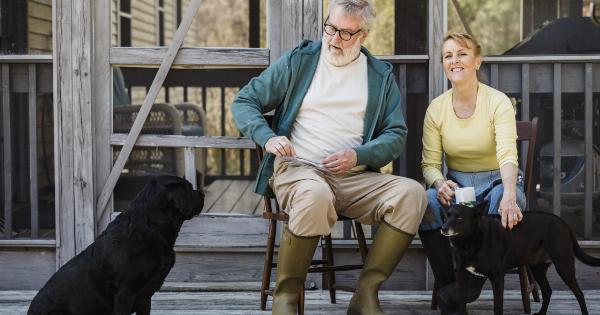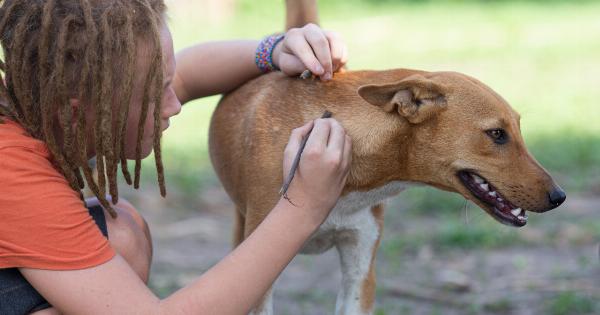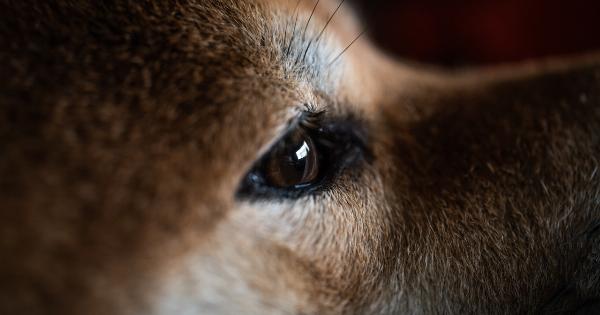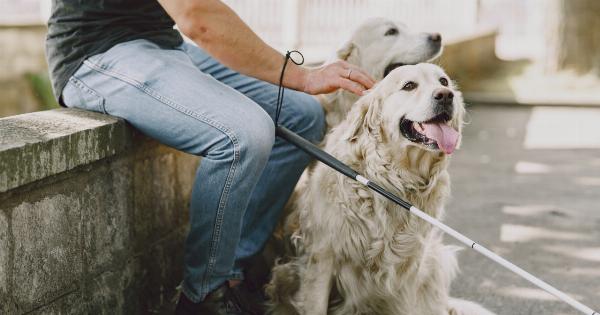As dogs age, they can experience various health issues, just like humans. One of the most common conditions affecting older dogs is canine dementia, also known as canine cognitive dysfunction (CCD).
It is estimated that nearly a third of all dogs over the age of 11 show signs of cognitive decline. Understanding the tell-tale signs of canine dementia can help pet owners identify the condition early on and provide the necessary care to improve their dog’s quality of life.
1. Disorientation and Confusion
One of the first signs of canine dementia is an increased level of confusion and disorientation in familiar environments. Dogs may seem lost or unsure, even in places they have been before.
They may wander aimlessly, get stuck behind furniture, or forget where their food and water bowls are located.
2. Changes in Sleeping Pattern
Dogs with dementia often experience disruptions in their sleep cycle. They may sleep more during the day and become restless at night, leading to nighttime wandering or disturbed sleep for both the dog and the owner.
3. Increased Anxiety and Agitation
Canine dementia can cause dogs to become more anxious and irritable. They may display signs of restlessness, pacing, or even aggression when approached or touched.
This change in behavior is often a result of their confusion and inability to understand their surroundings.
4. Loss of House Training Skills
Dogs suffering from dementia may forget their house training skills, leading to accidents inside the house. They may forget the signals they previously used to indicate their need to go outside and may eliminate indoors without warning.
5. Decreased Interest in Interactions and Play
While dogs age and naturally become less active, those with dementia may exhibit a significant decline in their interest to interact and play with their owners or other pets.
They may show disinterest in toys, spend more time alone, and withdraw from activities they once enjoyed.
6. Altered Vocalizations
Changes in vocalization patterns can be observed in dogs with dementia. They may bark more frequently, howl without reason, or make sounds that are typically not part of their normal behavioral repertoire.
7. Loss of Appetite or Changes in Eating Habits
Dementia can affect a dog’s appetite and eating behavior. Dogs may lose interest in food, forget to eat, or show difficulty in recognizing their food bowls.
Some dogs may also display repetitive behaviors, such as staring at their food without actually eating it.
8. Increased Dependency and Clinginess
Dogs with dementia often become more dependent on their owners and may display clingy behavior. They may follow their owners around the house, show signs of separation anxiety, or become distressed when left alone for even short periods of time.
9. Memory Loss and Lack of Recognition
One of the hallmark signs of dementia is memory loss. Dogs may forget familiar people, including their owners, and struggle with recognizing their favorite toys or known routes during walks. They may also fail to respond to previously learned commands.
10. Staring Into Space
Dogs with dementia may exhibit episodes of staring blankly into space, seemingly unaware of their surroundings. These moments can be quite distressing for both the dog and their owner, as they indicate a deep state of disconnection and confusion.
Recognizing these tell-tale signs of canine dementia is crucial for seeking appropriate veterinary care and providing the right support and treatment for your beloved pet.
While there is no cure for dementia, there are management strategies, dietary changes, and medications that can help slow down the progression of the disease and improve the overall well-being of your senior dog.































